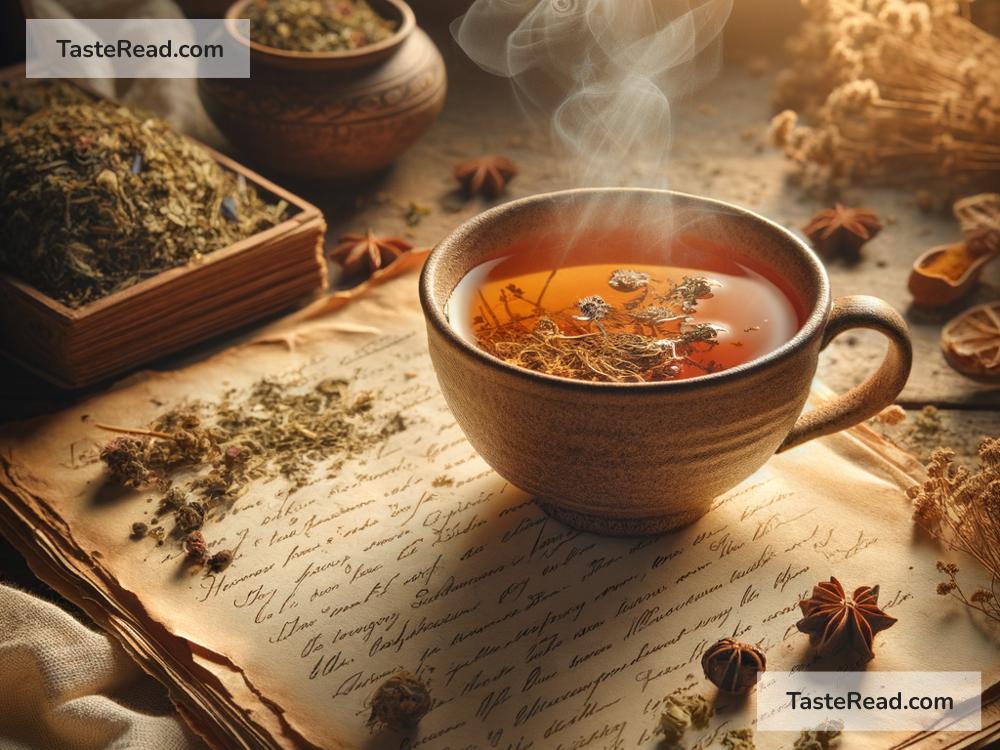The Tea That Reveals Hidden Truths
In a small, picturesque village surrounded by rolling hills and thick forests, there was a peculiar tea shop called “Whispering Leaves.” Nestled at the corner of a cobblestone street, the shop was an unassuming little place with wooden shutters, flower boxes filled with cheerful daisies, and a faint aroma of spices that wafted through the air. Its owner, Mrs. Beatrix Elms, was known not only for her eclectic teas but also for her mysterious reputation. Rumors swirled through the village that her tea could reveal hidden truths—but no one dared ask too many questions.
Mrs. Elms was an elderly woman with silver hair that always seemed to sparkle in the sunlight. Her eyes carried a twinkle of mischief, and she spoke in riddles more often than not. Although she was friendly, there was something enigmatic about her—a feeling like she knew more than she let on.
One drizzly autumn afternoon, a stranger walked into Whispering Leaves. His name was Oliver Hayes, a young journalist who had been traveling through the countryside in search of stories to publish. He had heard whispers from villagers about Mrs. Elms’s mystical tea, and curiosity had brought him through her door.
The shop was cozy, with shelves lined with glass jars containing herbs, dried fruits, and spices of every imaginable color. A fireplace crackled in the corner, and the air was heavy with the scent of cinnamon and honey. Oliver wandered to the counter, where Mrs. Elms was quietly measuring scoops of loose-leaf tea into a tiny golden teapot.
“Let me guess,” she said without looking up. Her voice was warm and wise, like the creak of an old wooden bridge. “You’re here because of the stories—the ones about my tea.”
Oliver hesitated, surprised at her accuracy. Then he found his words. “Yes. I’ve heard people say your tea can reveal truths. Is it real? Or is it just folklore?”
Mrs. Elms smiled knowingly and gestured for Oliver to sit at a small table near the window. “Truth,” she said, “can mean different things to different people. Sometimes it’s buried deep within us, and sometimes it’s waiting in plain sight. My tea simply helps one see what’s already there.”
Intrigued but skeptical, Oliver accepted her offer to brew him a cup. He watched as she selected a handful of ingredients from various jars—fragrant lavender, bold black tea leaves, shimmering crystals that looked like sugar but carried a faint glow—and mixed them together with almost ceremonial precision.
As the tea steeped, Mrs. Elms placed the teapot and a single porcelain cup before him. The liquid was a delicate shade of amber, and its scent was intoxicating—a blend of earthiness and sweet floral notes.
Oliver took a sip. At first, the tea tasted no different from any other he’d tried—pleasant, soothing, but ordinary. Then something shifted. A strange warmth spread through his chest, and his mind felt clearer, sharper. Images began to surface—memories he’d long forgotten or perhaps ignored.
He saw his mother’s face, tired but smiling, encouraging him to chase his dreams of becoming a writer. He saw old friends he’d lost touch with, standing outside of a theater they used to visit together. He felt the weight of a decision he’d made years ago—to leave home and pursue ambition rather than stay and strengthen relationships.
What was happening? Oliver gripped the table as more visions unfolded. He saw himself as a child, sitting cross-legged on the floor, scribbling stories into a notebook. He remembered the joy of creating—not for fame or recognition, but simply for the love of weaving words together. Somewhere along the way, he’d forgotten that part of himself, letting deadlines, competition, and the pursuit of success overshadow his true passion.
When the tea’s effect faded, Oliver sat silently, lost in thought. Mrs. Elms watched him with patient kindness, her hands resting on the counter.
“I don’t understand,” Oliver said finally. “That tea… it made me remember things, things I wasn’t even thinking about. Why?”
Mrs. Elms chuckled softly. “The tea doesn’t lie, Oliver. It speaks to your heart, not your head. What you saw were truths you’ve been carrying inside you all along. Sometimes the hardest truths aren’t secrets others keep from us—they’re the ones we keep from ourselves.”
He left the shop that evening with a mix of emotions—confusion, clarity, and a newfound sense of purpose. The tea hadn’t given him answers, but it had shown him where to look.
Over the following weeks, Oliver began to approach life differently. He reached out to people he cared about, repaired broken relationships, and, most importantly, reignited his passion for writing. His stories became more heartfelt, drawing inspiration from his own experiences and the people around him. He realized that truth—not just facts, but honest, meaningful storytelling—was what connected him to others.
The tea of Whispering Leaves was no ordinary brew. It didn’t perform miracles or grant mystical visions. What it did was far simpler, yet far more profound: it helped people listen to their own truths.
And sometimes, that’s exactly what we need. All the answers we ever seek might already lie within us—waiting for a little nudge, a quiet sip of courage, and the clarity to see what’s hidden in plain sight.


